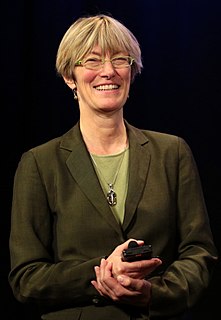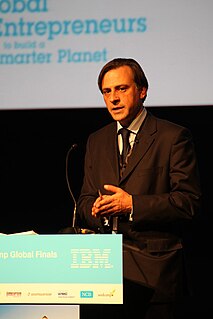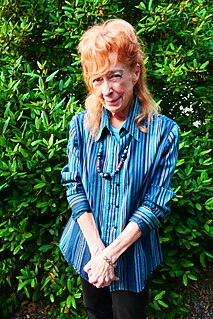Related Research Articles

Middlebury College is a private liberal arts college in Middlebury, Vermont. It was founded in 1800 by Congregationalists, making it the first operating college or university in Vermont. The college currently enrolls 2,526 undergraduates from all 50 states and 74 countries and offers 44 majors in the arts, humanities, literature, foreign languages, social sciences, and natural sciences.

Jon Wolfsthal is an independent consultant and expert on all aspects of nuclear weapons, arms control, nonproliferation, and deterrence issues. He is a non-resident fellow at the Managing the Atom Project at the Belfer Center at Harvard University and at the Carnegie Endowment for International Peace. He is also a columnist for Foreign Policy's Shadow Government. He is also a senior advisor at Global Zero. He served most recently (2014-2017) as special assistant to President Barack Obama and Senior Director for Arms Control and Nonproliferation at the National Security Council. In that post, we was the most senior White House official setting and implementing U.S. Government policy on all aspects of arms control, nonproliferation, and nuclear policy. He worked previously in government, in academia and in the non-governmental community and is a leading scholar and educator in the areas of nuclear deterrence, arms control and nonproliferation issues. During his more than five years at the White House, he helped guide key aspects of U.S. nuclear and nonproliferation policy. He was directly involved in crafting President Obama's Prague speech, served on the delegation to the 2010 Nuclear Security Summit, helped negotiate and gain Senate approval of the New START arms control agreement with Russia, helped draft the 2010 Nuclear Posture Review and coordinated U.S. policy for the 2015 NPT Review Conference. He was instrumental in supporting President Obama's historic visit to Hiroshima, Japan in 2016.

The Middlebury Institute of International Studies at Monterey (MIIS), formerly known as the Monterey Institute of International Studies, is an American graduate school within Middlebury College, a private college in Middlebury, Vermont.

The School of Global Policy and Strategy (GPS) at the University of California San Diego, formerly the Graduate School of International Relations and Pacific Studies (IR/PS), is devoted to the study of international affairs, economics, and policy education. Until 2015, it stood as the only professional school of international affairs that was exclusively focused on Asia and the Americas.
The Maryland School of Public Policy is one of 14 schools at the University of Maryland, College Park. The school is located inside the Capital Beltway and ranks 16th nationally for schools of public policy according to U.S. News & World Report (2012).
Policy studies is a subdisicipline of political science that includes the analysis of the process of policymaking and the contents of policy. Policy analysis includes substantive area research, program evaluation and impact studies, and policy design. It "involves systematically studying the nature, causes, and effects of alternative public policies, with particular emphasis on determining the policies that will achieve given goals." It emerged in the United States in the 1960s and 1970s.
Study of Environmental Arctic Change (SEARCH) is a collaborative program of Arctic researchers, funding agencies, and others that facilitates synthesis of Arctic science and communicates the current understanding to help society respond to a rapidly changing Arctic.
The Stanford US–Russia Forum (SURF) is an organization dedicated to bringing students at leading Russian and American universities together for research in public policy, business, economics and many other disciplines. The program begins with a fall conference in Russia, followed by six months of work on collaborative research projects and a capstone conference in the spring at Stanford University. Currently in its tenth year, more than 400 undergraduate, graduate, and professional school students from Russia and the U.S. have participated in the program.
The Fletcher School of Law and Diplomacy is the graduate school of international affairs of Tufts University, in Medford, Massachusetts. Fletcher is well-ranked in its masters and doctoral international affairs programs. As of 2017, the student body numbered around 230, of whom 36 percent were international students from 70 countries, and around a quarter were U.S. minorities. The school's alumni network numbers over 9,500 in 160 countries, and includes ambassadors, diplomats, high ranking military officers, heads of nonprofit organizations, and corporate executives.

Allison Katherine Stanger is a political scientist and the Russell J. Leng '60 Professor of International Politics and Economics at Middlebury College and the founding director of Middlebury's Rohatyn Center for International Affairs. Stanger has been a member of the Council on Foreign Relations since 2004, and since October 2009 she has worked as a part-time consultant to the United States Secretary of State's Policy Planning Staff.

Linwood Pendleton, an American environmental economist, is the World Wildlife Fund (WWF) Global Oceans Lead Scientist. He works across the WWF network and with partners to integrate science and research into ocean conservation strategy and initiatives. Since October 2014, Pendleton has served as International Chair in Marine Ecosystem Services at the Laboratory of Excellence and European Institute for Marine Studies. He is also a senior fellow at Duke's Nicholas Institute for Environmental Policy Solutions (NIEPS) and Adjunct Associate Professor at the Duke University Marine Laboratory, part of NIEPS. He previously served as the Director of Ocean and Coastal Policy for the Nicholas Institute (2009-2013) and was the founder of the Marine Ecosystem Services Partnership. Pendleton was the Acting Chief Economist for the National Oceanic and Atmospheric Administration (NOAA) from 2011-2013.

Constantin Gurdgiev is a Russian economist based in Dublin, Ireland. He is a former editor of Business & Finance Magazine and a regular panelist on Tonight with Vincent Browne on TV3.
Dr. Sunder Ramaswamy is an international development economist, an educator, and higher education administrator with extensive experience in U.S and India. He is the Vice Chancellor of KREA University, a new private university effort in Sri City, A.P., and Chennai, India. He is also a Distinguished College Professor of International Economics, Middlebury College, U.S.A.

Daniel Sperling is the American founding Director of the Institute of Transportation Studies at the University of California, Davis (ITS-Davis); Professor of Civil and Environmental Engineering; Professor of Environmental Science and Policy; and Faculty Director of the Policy Institute for Energy, Environment, and the Economy at the University of California, Davis.
Beryl Levinger is a professor of international development at the Middlebury Institute of International Studies at Monterey.

Jan Knippers Black is an American professor of Human Rights, International and Comparative Politics of the Western Hemisphere, Women's Rights, and Globalization at the Middlebury Institute of International Studies at Monterey.
Robert Rogowsky is a professor of International Policy, Development and Trade at the Middlebury Institute of International Studies at Monterey.
Pushpa Iyer is a professor of Conflict Analysis and Resolution and Director of the Center for Conflict Studies at the Middlebury Institute of International Studies at Monterey.

The Center for the Blue Economy (CBE) is a research center managed by the Middlebury Institute of International Studies (MIIS) in Monterey, California. The CBE research focuses on the Blue Economy.The CBE was founded in 2011. It received the initial fund of $1 million from Robin and Deborah Hicks, the parents of the Middlebury College students, in their capacities as trustees of the Loker Foundation. Professor Jason Scorse, who is also the Head/Chair of International Environmental Policy (IEP) program at MIIS, is the Director of Center of Blue Economy. The CBE was created to address the issues related to "Blue Economy" in the ocean and coastal areas.
References
- ↑ "Jason Scorse". Faculty Profiles. Middlebury Institute of International Studies at Monterey. Retrieved 14 April 2015.
- ↑ "Dr. Jason Scorse". Center for Surf Research. San Diego State University. Retrieved 14 April 2015.
- ↑ "Center for the Blue Economy Director Jason Scorse Explains "Surfonomics" in Fortune". News Stories. Middlebury Institute of International Studies at Monterey. Retrieved 14 April 2015.